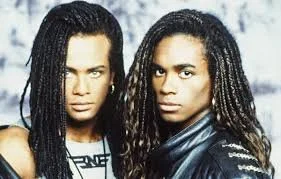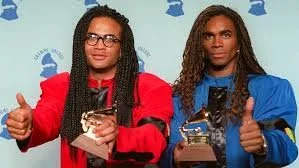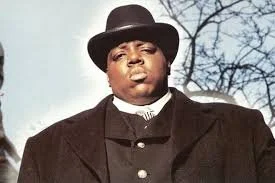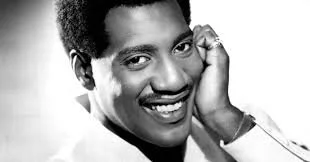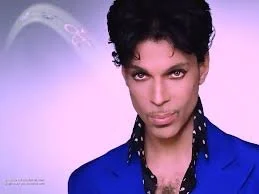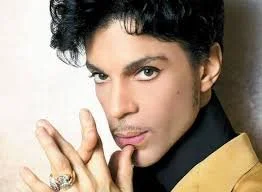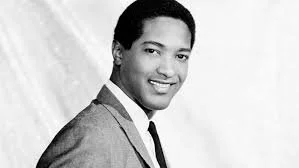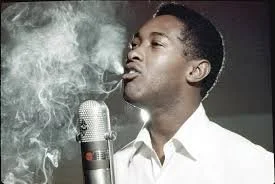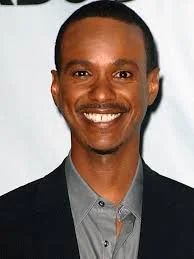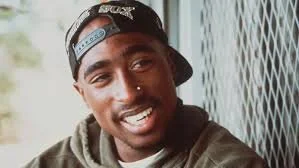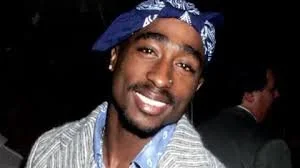Patriarchy and the Music Industry : Men Victims (2)
8. Milli Vanilli: Fab Morvan and Rob Pilatus, the duo that made up Milli Vanilli were persuaded to forego authenticity against good conscience to become lipsyncing performers by Frank Farian, the man who had founded the group Boney M. The quest to escape the shackles of poverty blinded them from the unethical request of an unscrupulous music executive and they thought they were in good hands. With the release of “Girl You know it’s true”, the one time deceit became normalized and irreversible.
More singles would be released to critical acclaim and Morvan and Pilatus would become an overnight sensation, even winning a Grammy Record for their deceitful musicianship. Thereafter, the walls would begin to crack and questions would be posed following the observation of discrepancies in their live performances and their low proficiency in the English Language.
With mounting interest about the real singers of the group, Farian who had compelled the duo to lipsync in the first place, would publicly throw them under the bus with the revelation that the men were impostors. Pilatus would tell Los Angeles Times that “ We’ve had to lie to everybody. We are true singers, but that maniac Frank Farian would never allow us to express ourselves”.
As a result, Arista Records would erase the duo from their roster and their Grammy Award would be revoked. Even though Clive Davis and many others in the industry knew of the deception, the duo were treated like pariahs who had singlehandedly resolved to lipsync. Since it is not in the character of a narcissistic patriarchal system to be self- accountable or responsible, they were scapegoated and publicly disgraced. With their reputation soiled, the bigballers on the other hand, feasted on the proceeds of their grand deception.
9. Notorious B.I.G : As earlier alluded, the violence-ridden rap culture that emerged in the 1990s, a stark deviation from the antecedental conscious rap of the 1980s demonstrated by Whodini, Public Enemy, KRS One, etc. was a construct and not a coincidence. Rap was weaponized to infiltrate and behaviourally engineer the youthful black demographic into violence, in order to create sufficient labourers for global corporations within the American Prison Industrial Complex. The East-Coast -West Coast rivalry which became larger than life and pitted Tupac vs Notorious BIG, amongst others was also a construct and therefore, inorganic. It was characterized by mockery, condescension, diss and counter-diss tracks from both sides of the hemisphere.
Performative reconciliatory moves were orchestrated with the goal of conflict resolution like Snoop Dogg and Sean Combs’ appearance on The Steve Harvey Show and the Louis Farrakhan organized peace summit.
Biggie Smalls would be murdered in a drive-by shooting in Los Angeles. His last album Life After Death released on March 25, 1997, received critical acclaim and positioned him as one of the best of his generation. In the aftermath of his death, Sean “Puff Daddy” Combs would tell Rolling Stone in 1997 that: “Nobody can tell me that just ’cause you a rapper, at the end of the day you get killed because you the flyest rapper? Motherfuckers are so jealous just ’cause you the best?”.
Puff Daddy would turn out to be the jealous motherfucker who orchestrated BIG’s death following all the revelations about him that have been publicized after his arrest this year. It turns out that BIG had intended to leave Bad Boy Records after the release of the album in 1997. Eerily, the title of the last album came from Puff Daddy and the one who smiled to the bank after the demise of BIG was Puff Daddy. Surely, they are worth more, dead than alive!
10. Otis Redding: Redding was a year short of joining “Club 27” at the time of his demise. Influenced by Sam Cooke, Redding had learned the lesson of black determination as demonstrated by the former. Through the incorporation of music and entrepreneurship, he amassed stupendous wealth from his performances, royalties and music publishing. He charged $35,000 weekly for his concerts and was touted to have sold more records than Frank Sinatra and Dean Martin combined in 1967.
On December 10 1967, Redding was en route to a performance in his Beechcraft H18 aircraft, when it crashed near Madison, Wisconsin, where he was scheduled to perform that night. One band member survived. The cause of the crash was never found. The young and promising soul artist was cut short prematurely. Was this coincidence or did someone find black artistic and financial autonomy problematic and intolerable? Did someone perceive the threat of a good example and conspire to erase him just like they did Sam Cooke, to serve as deterrent, which would keep other black artists in perpetual servitude and discourage them from emulating the pattern?
11. Prince: He was one of a kind. He defied categories. He displayed versatility in all his musical endeavours. He was a prolific performer and songwriter with a new album released almost yearly. He mirrored the unification of the feminine and masculine principles. He was male and female. His vocal range varied from falsetto to baritone. He was everything and everything was him.
He normalized rage against injustice and creative vampirism in the music industry. His was the loudest voice to be heard about this malaise in the early 1990s when most artists were mostly hush on the subject. He fought against Warner Bros. for artistic autonomy and control of his creations and exposed the unfair deal he had been given to the world.
Following the lawsuit, he would appear publicly with “slave” inscribed on his cheek. He had reportedly stated that artists with no ownership of their masters were slaves. A master is the original and final sound recording of a song or album from which duplicates are derived. Consequently, he adopted measures to rewrite his story by starting his record company NPG (New Power Generation) Records. He would change his stage name to a sigil, as a marker of his emancipation from Warner Bros., who claimed ownership of the name “Prince”, in order to reap all dividends accruable to him. He fought diligently to reinvent his identity and progressed to become an iconic independent artist.
Allegedly, he had developed a painkiller addiction as a post-treatment for a hip surgery. In April 2016, he would die of an Opoid Fentanyl overdose. Knowing the extent of narcissistic entitlement and vindictiveness in a patriarchal system guided by a master-slave dynamic, was drug overdose a cover-up for Warner Bros’. vendetta?
12. Sam Cooke: Cooke was an an all-rounder. He could sing, write, produce and entreprendre. His self-awareness equipped him to navigate and manage the polarities between the sacred and secular terrain with his lyrical versatility, as well as the racially driven emotions of the black vs white dichotomy which fostered the creation of a pure black expression and songs that appealed equally to a white audience.
Known for his charisma, sensuality and vibrato, he would stylistically inspire male vocalists after him like Otis redding, Bobby Womack, Lou Rawl, etc. He epitomized the American dream through his unprecedented accomplishments like philantrophic contributions to the young black demographic, the establishment of a soul record company, SAR Records and Kags Music Publishing, said to be one of the first publishing initiatives created by a headlining black artist, in conjunction with J.W Alexander, another astute entrepreneur.
The music labels created a system whereby all publishing royalties and half of the songwriting royalties were theirs to control while songwriters received the other half based on the label’s direction. The lucrativeness of song-publishing was a well-hidden secret which was seldom disclosed to artists-writers by music executives. In most cases, artists were uninterested when informed and chose the instant gratification of luxury cars and fashionable wardrobes, etc.
Consequently, Cooke fired Bumps Blackwell, his manager for his non-disclosure of the profitability of songwriting. On December 11, 1964, Cooke got into an altercation with a motel manager in Los Angeles, and she shot him in what she claimed was self-defense, after he allegedly attempted rape on a 22 year old woman. The incident was ruled as a justifiable homicide, however, his friends and family insist that his murder was conspiratorial with his manager as a primary suspect. Etta James, for instance, saw Cooke’s body before his interment and consistently argued till her demise that his injuries reflected the outcome of a beating than a shooting. Did Cooke’s success provoke the ire of the music proprietorship who felt more entitled to the dividends of his musical talent and entrepreneurship than him?
13. Tevin Campbell: Campbell in his heyday was the Malakai Bayoh of his time. Touted as the male Whitney Houston, he exemplified a shining star with a promising future. However, the trajectory of his life would be truncated by abuse in the industry.
Few decades ago, Professor Griff of Public Enemy had commented on Campbell’s plight. However, in recent times, Jaguar Wright has also publicly painted the poignant devolution of Campbell’s career. According to her, “ How does a boy with a voice like that, that had the records that he had, that could have easily transformed into one of the greatest male vocalists of all time, end up prostituting himself for drugs and change on Hollywood Boulevard? How does that happen with a gift like his?
According to the grapevine, Campbell was molested by Quincy Jones, the same man who brought him to limelight. He would come under the protective custody of Siedah Garett, the writer of Michael Jackson’s “Man in the Mirror”. He never became a superstar.
14. Tupac Amaru Shakur : He was bright, intellectual, charismatic and loved across the world. Shakur remains the most influential Hip-Hop/Rap artist ever. In terms of global impact, he belongs to the class of music revolutionaries like Bob Marley, John Lennon, Prince and Michael Jackson.
Long before his demise, he had been assailed by unknown gunmen on different occasions. In the aftermath of the Cassie Ventura vs Puff Daddy saga, revelations have shown that his death was driven by jealousy from other black rappers who wanted to wear his shoes. For them, the sky was not wide enough for all to fly. In fact, former LAPD detective Greg Kading in his book Murder Rap accused Puff Daddy and Suge Knight of being the masterminds of Shakur’s death.
As Christian faithfuls, we were taught that a man’s gift would bring him before kings. In essence, given one’s innate abilities, the chances of fame and fortune are a given. However, a look at the realities of the world indicates that the music industry is a topsy-turvy terrain in which mega corporations operated by a small clan of psychopaths dehumanize, objectify and extract profits from artists for their benefit.
Besides, it takes more than talent to excel in the music industry. There are unwritten expectations of moral compromise like indulgence in “Freak-offs” ala Diddy where engagement in sexual razzmatazz of untold proportions is the way to gain mobility within the system. Self-expression and assertion in demanding one’s entitlement ignites levity, outrage and even death. Talents are expected to forego agency and voluntarily submit to the draconian rules imposed by music proprietors. I suppose it is safe to conclude that truly, all that glitters is not gold because the executives love everything, but music. There seems to be an agenda to kill music and the musically gifted.
In view of the current dismantlement of Hollywood, it would be interesting to hear artists publicly recount their experiences in the industry and the price they had to pay for success, whatever that means.
